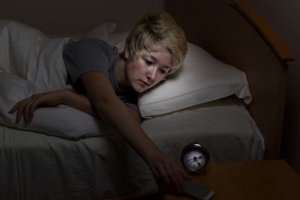Super User
NMW Reversal for Sleep-ins
In a decision that has significant implications for the care sector, the Court of Appeal has recently reversed an earlier Tribunal decision regarding pay for workers on “sleep-in” shifts. The court ruled that such workers are not entitled to The National Minimum Wage for the hours they are sleeping and not actually supporting clients. Instead, a flat pay rate for each shift is deemed as fair and acceptable.
In the case of Royal Mencap Society v Tomlinson-Blake, an Employment Tribunal and then an Appeal Tribunal had previously ruled that a carer, Mrs Tomlinson-Blake, should be paid the National Minimum Wage for her entire night shift. This was despite the fact that she slept on-site and facilities were provided for her to do so. The Tribunal also concluded that six year’s back-pay should be made.
The Court of Appeal did not agree with the Employment Tribunal or EAT however, allowing the care industry to breathe a sigh of relief. The estimated cost in back-pay across the care sector is an estimated £400million. This may be only a temporary reprieve however as the case may yet go to the Supreme Court for a final ruling.
Ever since the introduction of the National Minimum Wage and National Living Wage, cases such as this have been the subject for dispute over pay. The care sector in particular has been under scrutiny but other professions including fire-fighters and night-watchmen are also affected.
Had the Court of Appeal upheld the earlier decisions, some care providers would have undoubtedly been forced into bankruptcy by their back-payment bill. This would have left many vulnerable people without care and put a huge strain on local authorities and ultimately the NHS. However the decision does appear to fly in the face of other decisions regarding minimum wage.
The Sports Direct case a few years ago is a classic example. Workers who had finished their shift were required to queue up to be searched before they could leave the Sports Direct premises. This queueing time was regarded as working time because the employees were required to be on site; thus resulting in an increase in working hours and so a pay rate that fell below the national minimum allowed. Why don’t those “on-site” rules apply here?
With the potential financial implications that a ruling in favour of National Minimum Wage for sleep-ins would have on an already struggling system, we wonder whether there was any political motivation in the Court of Appeal’s decision.
It will probably be a while for this case to reach the Supreme Court for an ultimate decision. If you’re an employer who might be affected ruling in favour of Mrs Tomlinson-Blake, it’s probably good advice to be prepared for the worst.
If you're affected by this topic or if you need some HR support over how you pay your workers give us a call on 01452 331331 or e-mail This email address is being protected from spambots. You need JavaScript enabled to view it.
Are You Paying Enough?
Could you be another of the 239 companies named, shamed and fined for failing to pay the National Minimum Wage? A recent report has highlighted that a total of £1.44 million was underpaid to over 22,000 workers and businesses were fined a total of £1.97 million by HM Revenue and Customs.
Amongst the offending under-payers were big names such as Card Factory, UCI Cinema Group and Wyevale Garden Centres; organisations that will have large HR departments and who frankly should know better. Card Factory, was the biggest offender, failing to pay over £430,000 to over 10,000 workers.
We have previously discussed the pay failings of Sports Direct who were also brought to book for not including the time that employees had to queue for staff searches when calculating hours worked. The extra 15 minutes or so that staff had to wait when leaving their workplace effectively bought their hourly rate below the legal minimum.
It seems that it is failure to take into account added costs and miscalculations of working hours that are the most common reasons for not paying the minimum wage. The government listed the top five reasons for underpayment as:
- taking deductions from wages for costs such as uniforms
- underpaying apprentices
- failing to pay travel time
- misusing the accommodation offset
- using the wrong time periods for calculating pay
The uniform trap is an easy one to fall into. Remember that if you instruct your staff to wear a particular garment for work, this amounts to uniform and an allowance should be made for it. Waiting staff in a restaurant for example who must wear black jeans may have to spend £30 or £40 to comply. If they are already on minimum wage, this added cost for them will effectively bring their pay under the threshold as HMRC will treat it as a deduction from pay.
Even if you supply uniform, you could still get caught out as employees will normally be expected to launder it themselves for which there will be costs. These costs should be accounted for, or an allowance made.
Financial penalties for paying less than the minimum wage can be up to double the amount owed, capped at £20,000 per worker. However it’s reputational damage that may be the greatest cost as employers who are seen to flaunt employment legislation will find it harder to recruit good quality staff in the future and may even see some customers vote with their feet.
We know that the payroll is usually an employer’s biggest cost so we understand that keeping the wage bill down is a challenge faced by many. There is no excuse however for failing to keep to your legal obligations on pay so it’s important to remain vigilant of potential pitfalls if you have employees who are on or close to the National Minimum Wage.
If you need some support and advice with this topic or if you feel a HR audit might be a good idea, just give us a call on 01452 331331 or e-mail This email address is being protected from spambots. You need JavaScript enabled to view it.
What's Your Penalty Shoot-Out?
Were you one of the 24 million viewers who tuned into watch England vs Columbia the other night; and if so did your fingernails survive the ordeal of the penalty shoot-out? There were certainly some tense and stressful moments which undoubtedly induced sweaty palms and racing hearts for many of the fans who were watching and listening.
Considering how anxious we felt merely spectating from the side-lines, it was a remarkable display of calmness and demeanour from the players who were actually involved. The England team’s poor record in penalty shoot-outs and big tournament matches made their management of the situation a true demonstration in outstanding Mental Toughness.
We learned in the post-match interviews with the players and manager that their incredible mental attitude didn’t happen by chance. A prolonged plan and strategy had been implemented to prepare the players for the very situation they found themselves in. Post training penalty practice, studies of the opposition’s penalty taking preferences and owning & following a process were some of the tactics employed to give the team the best possible chance and the confidence to come out on top.
So what’s your penalty shoot-out?
Are there situations at work that you dread? Does the thought of a difficult conversation perhaps, or return to work interview give you sweaty palms? Does the prospect of a grievance hearing or dismissal meeting get your heart pumping? Like England’s penalty shoot-out, these aren’t events that we generally get a lot of practice in. There are steps we can take however to prepare and give us the confidence to achieve the outcome we desire.
Knowing your processes and what their triggers are is a good starting point. You’ll struggle to embody confidence if you don’t have a complete grasp of what needs to be done and how. Being clear about the course of action you will take will put you in control of situation at the crucial time. The England penalty takers consistently practised shooting at the same spot in the goal. That consistency meant they were clear where they were aiming, so giving them the best possible chance of scoring a goal when the pressure was on.
The routine that the England players adopted in approaching the goal, collecting the ball and positioning it would have also helped them manage the stress of the situation. Stress can be very disruptive when you are trying to set and achieve objectives, but it can be managed to minimise impact. Tactics for overcoming stress is something we delve into in our Mental Toughness module on day three of our Level 4 Certificate in Leadership & Management course, which is available fully funded.
We can’t always avoid those penalty shoot-out moments but by being prepared for them we can definitely influence the outcome in our favour. England have every chance of making it to the World Cup final but let’s hope they do so without putting us through such a nerve-wracking ordeal again.
Talk to us about our upcoming funded training courses available for businesses in Gloucestershire and Worcestershire. Call us now on 01452 331331 or e-mail This email address is being protected from spambots. You need JavaScript enabled to view it.
The Sun and Tattoos are Out
With the current spell of hot weather set to continue, there has been the usual abundance of articles on the Internet discussing what steps to take to keep the workplace a comfortable and productive place to be, and how to maintain the welfare of employees during a heatwave. We echo these messages of course, but one point that gets overlooked is the effect of a relaxed dress code during a hot spell and the consequent exposure of tattoos that may not fit with a company dress code policy.
The Effects of the Pimlico Plumber Case
The latest high profile Employment Law case to come under scrutiny has been that of Pimlico Plumbers Ltd vs Smith for which we heard the Supreme Court ruling this week. As has been widely reported in the media, the Supreme Court (the third stage in the appeals process to do so) upheld the decision of the original Employment Tribunal. The ET’s decision being that despite being self-employed for tax purposes, Mr Smith was in fact a Worker under the Employment Rights Act 1996 (ERA).








